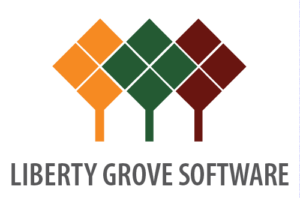Sales and Use Tax Laws Keep Changing. Don’t Worry, There’s an App for That!

State and federal tax laws are complex. Adding to the complexity is the fact that the laws keep changing, so your effort to stay on top of what you owe can feel like a losing battle. Instead of scratching your head or pulling your hair out, all you really need to do is purchase the Avalara or CCH SureTax software that integrates with your Microsoft Dynamics ERP system.
When do tax law changes go into effect?
Although the majority of state tax changes begin at the start of the calendar year, others take effect at the beginning of the fiscal year. Twenty-three states and the District of Columbia had tax changes that took effect on July 1, 2019, at the beginning of the 2020 fiscal year. Thirteen of those changes were related to sales tax, specifically the requirements imposed on remote sellers and marketplace providers, also known as marketplace facilitators.
Marketplace facilitator laws are becoming the norm at a feverish pace
As of December 31, 2018, only 7 states had a marketplace facilitator sales tax law.
By June 30, 2019, 15 states had a marketplace facilitator sales tax law.
As of January 1, 2020, 34 states (including D.C.) will have a marketplace facilitator sales tax law in place.
The sales tax laws on remote sellers are changing, too
At least 12 states changed existing laws affecting remote sellers during the first half of 2019 and there’s a good chance that this pace will pick up in the second half of the year. Furthermore, there’s a whole lot more to sales tax than just taxing out-of-state sales. States continue to broaden sales tax to new products and services, but they also continue to carve out new sales tax exemptions.
And then there are rate changes. There are always sales and use tax rate changes.
19 states had rate changes that took effect on July 1, 2019.
What is nexus, and how is it determined?
Nexus is the connection between a business and a state that creates a sales tax collection requirement. There are many ways to establish sales tax nexus, and no two-state sales tax laws are exactly alike. Determining which laws apply to your business is “tricky,” but it’s a crucial step toward compliance.
As one indication of just how tricky it can be, there isn’t just one type of nexus; there are four! They are affiliate nexus, economic nexus, click-through nexus, and physical-presence nexus. It’s entirely possible that you may have a sales tax collection requirement based on affiliate nexus in some states, economic nexus in others, click-through nexus in still others, and physical-presence nexus in yet more.
Of course, failure to collect and submit the relevant taxes in each state is no laughing matter and can result in stiff penalties. So, if you’re a manufacturer of widgets, for example, wouldn’t you prefer to focus on optimizing your manufacturing process rather then becoming a sales and use tax expert?
Next Steps
Get started on the road to compliance by contacting . Call us at 630-858-7388 or email us at nav@libertygrove.com.
Related Article:
Get to Know Some Helpful Microsoft Dynamics 365 Business Central/NAV Add-Ons

